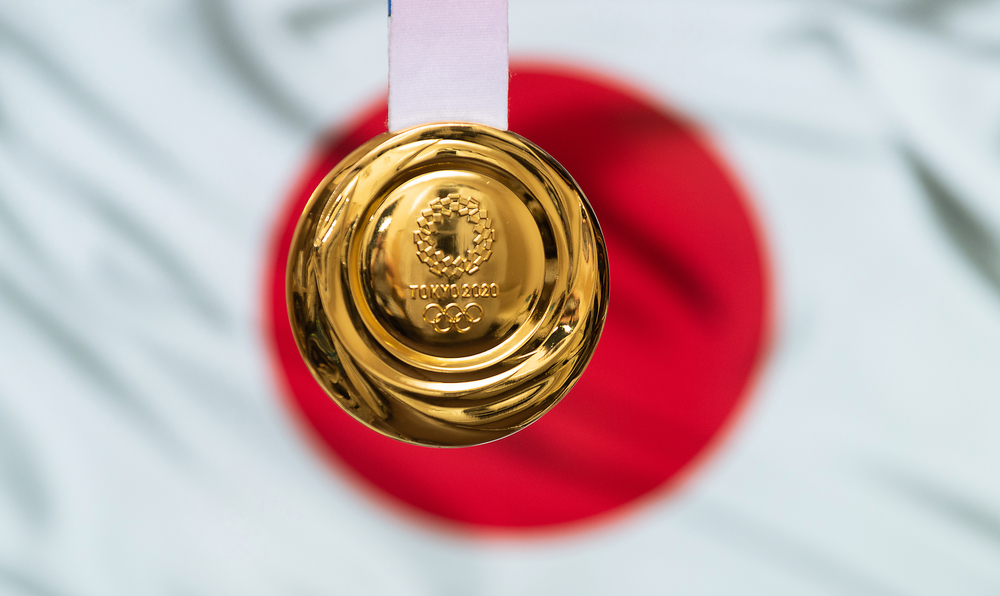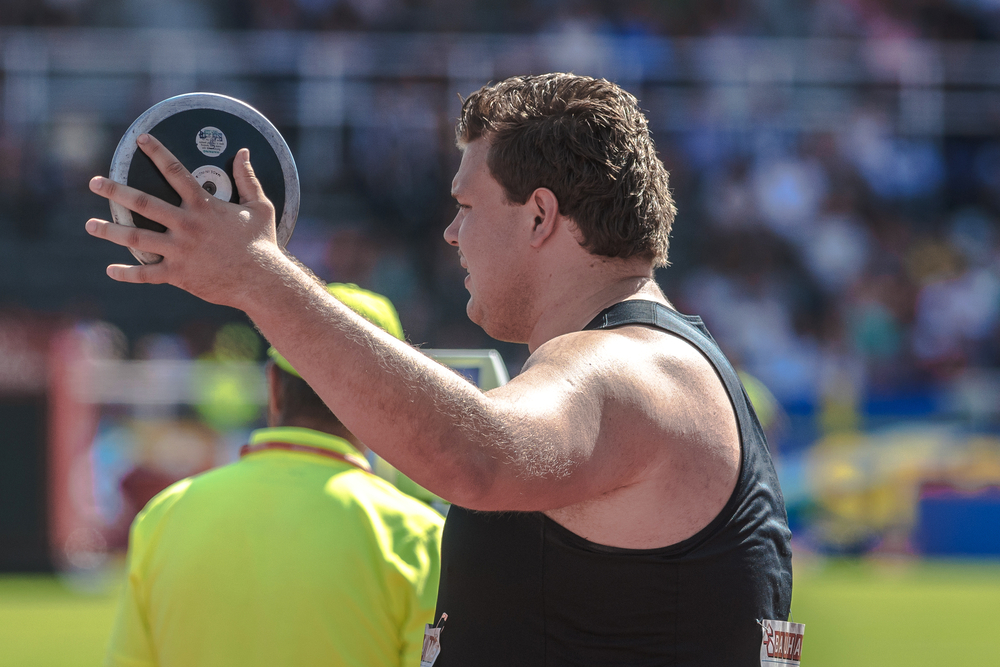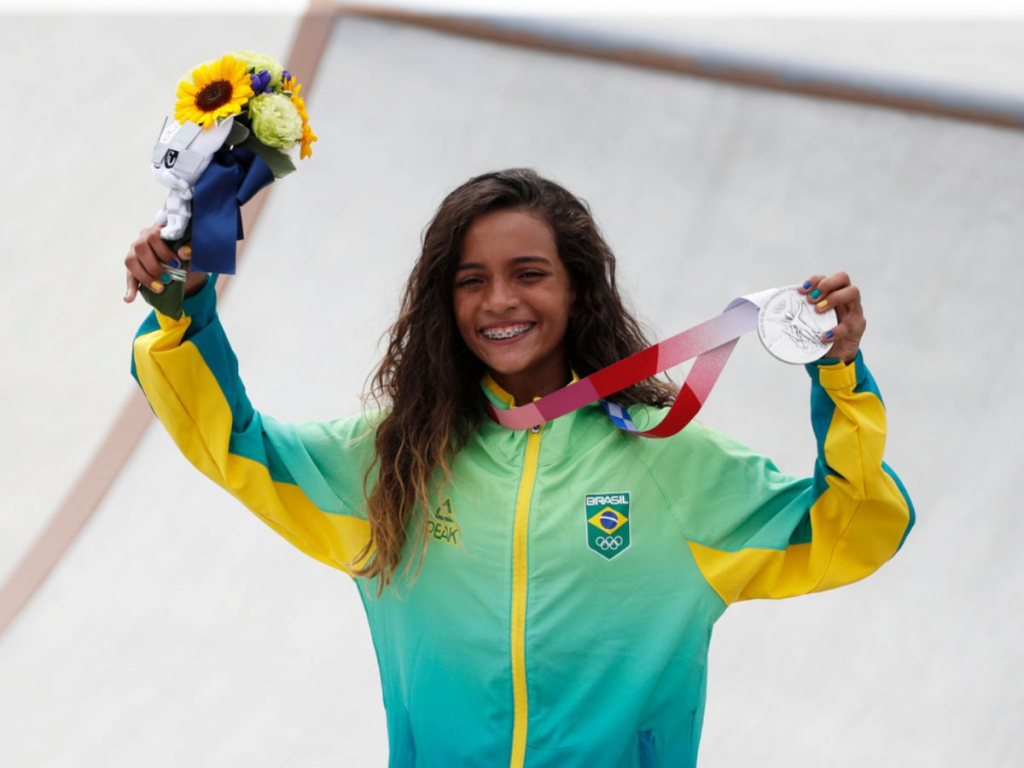Initially I found Tokyo 2020 a rather welcome distraction. An unsubtle ruse diverting me from the frenzy of collective internet outrage to a world of elite competition, incredible feats of human achievement and patriotism in both its most charming and nauseating forms. But even the best ruses are eventually exposed.
As the last week of the Games got into full swing, it was impossible to ignore the fact that Tokyo’s coronavirus numbers were ballooning to record highs in such dramatic fashion that the infographics had to be rescaled. Perhaps I found this particularly egregious as I became one of the afflicted. Lying glued to the bedsheets by way of my own sweat while coughing like I was rousing Cthulhu from the bowels of the ocean made it much harder to appreciate people running in circles, launching projectiles and jumping into sandpits.
Prime Minister Suga continues to address reporters with approximately zero emotion on his face, but with glaring certainty that the Olympics have no connection to the rising caseloads. That’s like inviting burglars into your house then pointing your finger at the dog when the TV doesn’t appear to be where you left it. At the very least, one has to question the conceit to make such bold claims.

A.RICARDO / Shutterstock.com
I find Suga’s assumption especially puzzling given at least 400 Olympics-related Covid-19 cases were reported and the precious bubble was popped on a handful of occasions (that we know of). Never mind that the Olympic volunteers were waltzing in and out of the bubble on a daily basis.
In any event, Tokyo 2020 is finally over. For good or for ill, we won’t forget it in a hurry.
It Ain’t All Bad
Even those most disenchanted by the five-ringed crusade and Japan’s ever-present persona non grata Thomas Bach would struggle to disavow Japan’s athletes of their record-breaking Olympic feats.
27 golds. It was the most Japan has ever ratcheted up in a single Games. The total of 58 overall medals will also be etched into the record books. Japan’s third-place finish in the medal table behind two of the world’s major athletic powerhouses, the US and China, is another personal best. While nine gold medals in judo surpassed Japan’s previous Olympic record of eight at Athens 2004.

fifg / Shutterstock.com
While Japan was taking solace in its Olympians giving the people something to cheer about, the US and China were bickering over how the medals should be counted, showing that, like it or not, politics is still very ingrained in sport. China claimed total number of golds was the way to tally, whereas the US asserted an overall number of medals was the operative method.
Though it eventually became a moot point when the US eclipsed China on golds, that two countries among those with the most money, resources and participating athletes were enthralled in such an arm wrestle is pathetic and remains worthy of scorn.
As far as I’m concerned, San Marino is the winner. The country of 33,860 residents sent five athletes to Tokyo 2020, three of whom came back with medals, meaning effectively 0.01% of the population are living Olympic medallists. That’s an achievement worth peacocking.
Projectiles and Alley-oops
The athletics dominated the final week of Tokyo 2020. Three world records were broken, the most notable of which came through Karsten Warholm who ran the first-ever sub-46 seconds 400m hurdle race. That said, his Hulk Hogan-style celebration left much to be desired and proved that it shouldn’t be attempted by anyone who lacks the strength to actually rip their shirt in two.

Stefan Holm / Shutterstock.com
There was an awful lot of throwing going on this past week, which makes me wonder how on earth somebody gets into discus. Evidently, you need to be humongous. The Viking-like gold medalist Daniel Ståhl looks as though he was raised on a diet of moose hearts and mead.
He reminded me that a serious range of body shapes are on show during Olympic track and field events. Looking at the athletes stood side by side is like surveying the Game of Thrones cast: whether you’re four-feet tall with pin limbs or shaped like a fridge on stilts, you’ll fit in somewhere.
Skateboarding also returned this week. I have to say the street skate event in week one was one of the most unenlivening events of the Games: teenagers making a racket before falling over then going to offer secret handshakes to every individual within a backward-facing cap is not my idea of entertainment. However, the park skate event was much better value and would have been more so were the commentator speaking an intelligible dialect.
Here’s a little snippet: “Kickflip lead melon out onto the layback, there’s the alley-oop front-side grab coming through the special bar. Up to fifty-fifty on the sub-box out to backside lipslide… down that waterfall… backside smith grind, tuck cut, stale fish, BIG backside tail slide, alley-oop three over the hip.” Took the words right out of my mouth.
Sayonara Tokyo 2020

Zazu photo film / Shutterstock.com
With the games bowing out, we were greeted with a rather contrived closing ceremony which felt as though it lasted much longer than its one-hour running time. The remaining athletes walked out into an empty stadium backed by music that recalled one of those what-an-experience-for-the-whole-family 1950s airline commercials where people used to say things like “golly” and “oh my.”
Even though the commentators were doing their best to give a sense of purpose to the whole affair, it amounted to little more than a carnival of cringe, epitomized by a closing ska rendition of Beethoven’s ‘Ode to Joy.’
Then again, lying in a coronavirus-induced stupor while watching the ceremony was always going to make me cynical. Perhaps grumbling under one’s breath is in fact the sincerest form of flattery. Or maybe I was just masking my lament that Tokyo 2020 was officially over.
The coming days, weeks and months will give us plenty of time to evaluate and debate whether these Games have been worth hosting in any demonstrable way. But they have certainly occupied us for a little while and there is something to be said for that.
Feature image by A.RICARDO / Shutterstock.com









